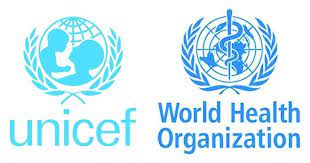By Haruna Gimba
The United Nations Children’s Fund (UNICEF) and World Health Organization (WHO) have called on governments, donors, civil society and the private sector to step up efforts to prioritise investing in breastfeeding support policies and programmes.
UNICEF Executive Director, Catherine Russell and WHO Director-General, Tedros Adhanom Ghebreyesus made the remarks in a joint statement on Tuesday, on the occasion of World Breastfeeding Week (WBW).
The week, under its theme “Let’s make breastfeeding at work, work,” UNICEF and WHO are emphasising the need for greater breastfeeding support across all workplaces to sustain and improve progress on breastfeeding rates globally.
Global crises continue to threaten the health and nutrition of millions of babies and children. However, the barriers women and families face to achieve their breastfeeding goals must be addressed, said the statement.
In the last decade, the prevalence of exclusive breastfeeding has increased by a remarkable 10 percentage points, to 48 per cent globally. Many countries such as Cote d’Ivoire, the Marshall Islands, the Philippines, Somalia, and Vietnam have made significant progress to increase exclusive breastfeeding rates.
However, to reach the global 2030 target of 70 per cent, the barriers women and families face to achieving their breastfeeding goals must be addressed.
Evidence shows that while breastfeeding rates drop significantly for women when they return to work, that negative impact can be reversed when workplaces facilitate mothers to continue to breastfeed their babies.
Family-friendly workplace policies-such as paid maternity leave, breastfeeding breaks, and a room where mothers can breastfeed or express milk – create an environment that benefits not only working women and their families but also employers, added the statement.
Yet even greater progress is possible when breastfeeding is protected and supported, particularly in the workplace.
In recent years, the number of employed women has increased in Bangladesh.
According to the Quarterly Labour Force Survey 2022, such number of women was 1.85 crore in FY17 and it increased to around 2.52 crore in 2022.
Experts recommend that as the women workforce is increasing day by day, the government should take better initiative to make breastfeeding more flexible in the workplace.
UNICEF and WHO in the statement urged all to step up efforts to: Ensure a supportive breastfeeding environment for all working mothers – including those in the informal sector or on temporary contracts – by having access to regular breastfeeding breaks and facilities that enable mothers to continue breastfeeding their children once they return to work.
Provide sufficient paid leave to all working parents and caregivers to meet the needs of their young children. This includes paid maternity leave for a minimum of 18 weeks, preferably for six months or more after birth.
And increase investments in breastfeeding support policies and programmes in all settings, including a national policy and programme that regulates and promotes public and private sector support for breastfeeding women in the workplace.


